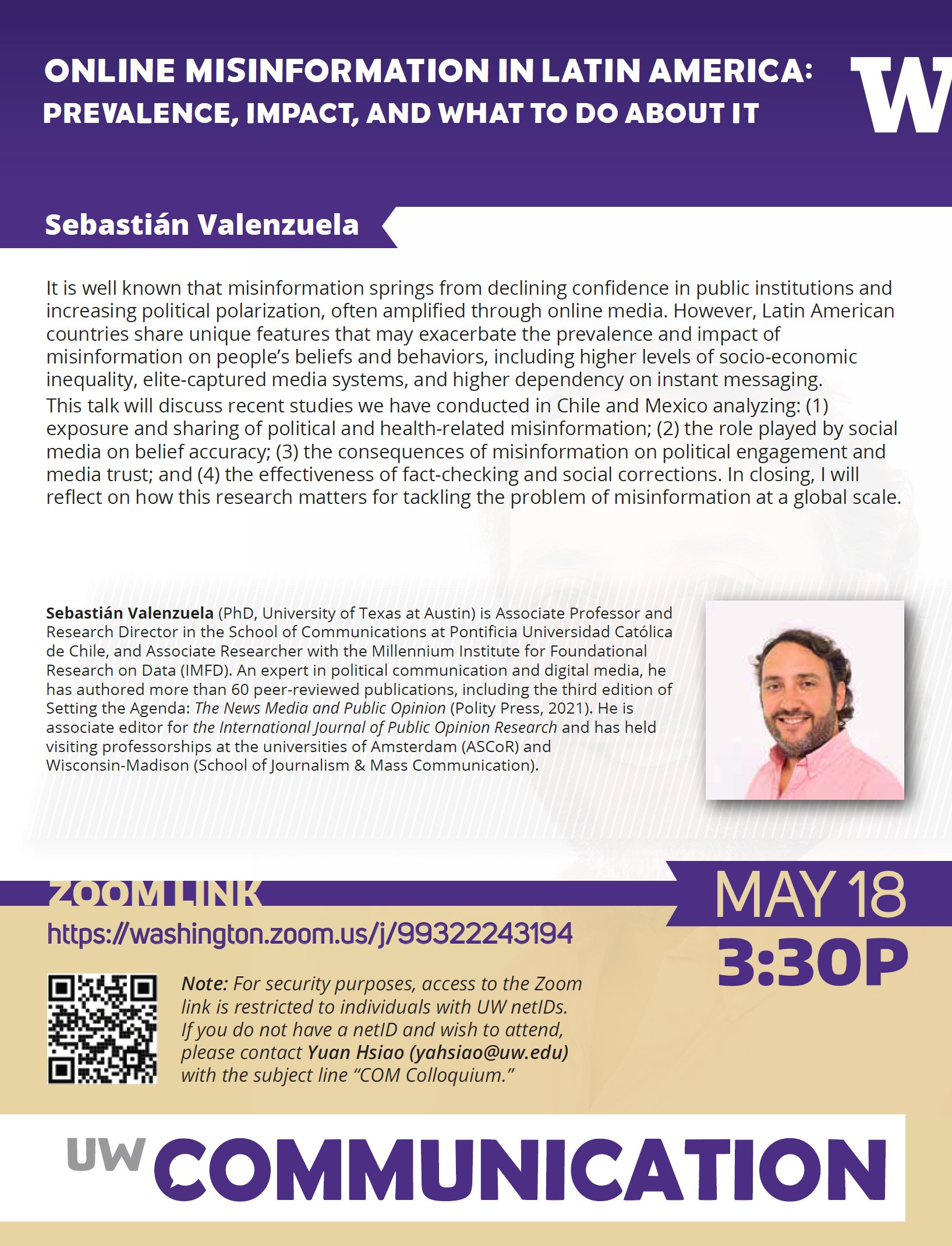Online misinformation in Latin America: Prevalence, impact, and what to do about it
ABSTRACT
It is well known that misinformation springs from declining confidence in public institutions and increasing political polarization, often amplified through online media. However, Latin American countries share unique features that may exacerbate the prevalence and impact of misinformation on peoples’s beliefs and behaviors, including higher levels of socio-economic inequality, elite captured media systems, and higher dependency on instant messaging. This talk will discuss recent studies we have conducted in Chile and Mexico analyzing: (1) exposure and sharing of political and health-related misinformation; (2) the role played by social media on belief accuracy; (3) the consequences of misinformation on political engagement and media trust; and (4) the effectiveness of fact-checking and social corrections. In closing, I will reflect on how this research matters for tackling the problem of misinformation at a global scale.
PRESENTER
Sebastian Valenzuela (PhD, University of Texas at Austin) is Associate Professor and Research Director in the School of Communications at Pontificia Universidad Católica de Chile, and Associate Researcher with the Millenium Institute for Foundational Research on Data (IMFD). An expert in political communication and digital media, he has authored more than 60 peer-reviewed publications, including the third edition of Setting the Agenda: The News Media and Public Opinion Research and has held visiting professorship at the universities of Amsterdam (ASCoR) and Wisconsin-Madison (School of Journalism & Mass Communication).
WHEN AND WHERE
May 18th, 18.30 Santiago de Chile (15.30 Pacific Time)
Online, in: https://washington.zoom.us/j/99322243194

